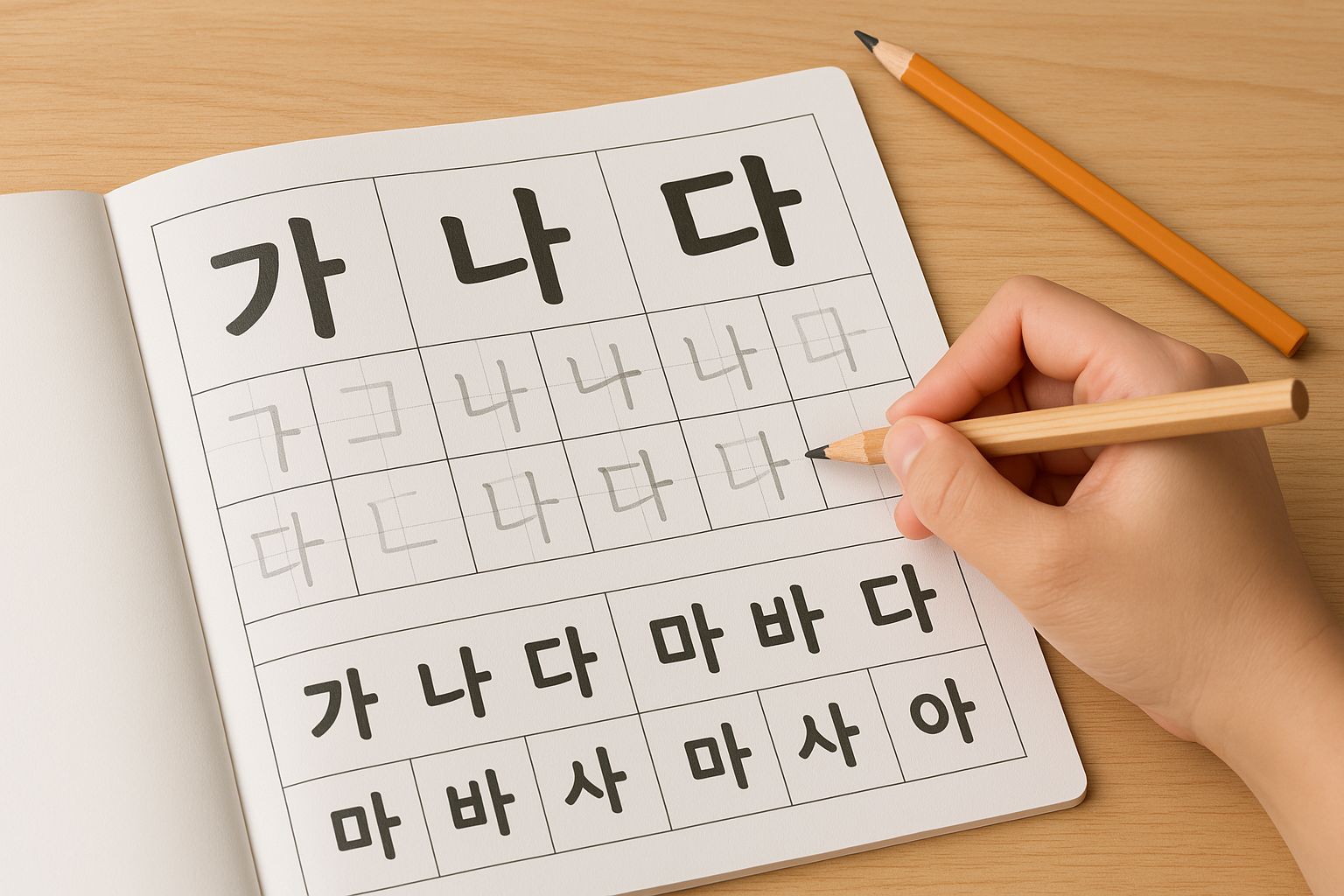🌟 Day 10: Korean Sound Change - Tensing Sound (경음화 / Gyeongeumhwa)
Hello again, Korean learners!
Yesterday, we learned about Liaison (연음화) — how final consonants move to the next syllable when followed by a vowel.
Today, we’ll cover another important sound change called Tensing (경음화 / Gyeongeumhwa).
Tensing happens when a regular consonant becomes a stronger (tense) version in certain environments.
This makes your Korean sound much more natural and native-like!
⸻

🔠 What is Tensing?
In Korean, there are tense consonants like ㄲ, ㄸ, ㅃ, ㅆ, and ㅉ.
Tensing occurs when a soft consonant like ㄱ, ㄷ, ㅂ, or ㅅ becomes tense (ㄲ, ㄸ, ㅃ, ㅆ) in pronunciation — often because of the influence of a final consonant (받침) before it.
⸻
🔹 Common Tensing Pattern
When a word ends in a final consonant (like ㄱ, ㄷ, ㅂ) and the next word starts with a plain consonant (like ㄱ, ㄷ, ㅂ),
that next consonant often becomes tense.
Written Pronounced Meaning
학교에 (hakgyoe) 학꾜에 (hak-kyo-e) to school
백두산 (baekdusan) 백뚜산 (baek-ttu-san) Baekdu Mountain
국밥 (gukbap) 국빱 (guk-ppap) Korean soup & rice dish
옷값 (otgap) 옫깝 (ot-kkap) clothing price
Note: The spelling doesn’t change — just the pronunciation!
⸻
🎯 Why Is This Important?
Tensing makes your pronunciation smoother and helps your Korean sound more fluent.
It also improves your listening skills, since native speakers naturally apply this rule without even thinking!
⸻
🗣️ Practice Time!
Try reading these out loud:
1. 학교에 가요 → hak-kyo-e gayo (I go to school)
2. 백두산에 갔어요 → baek-ttu-san-e gasseoyo (I went to Baekdu Mountain)
3. 국밥 먹어요 → guk-ppap meogeoyo (I eat gukbap)
4. 옷값이 비싸요 → ot-kkap-shi bissayo (The clothing price is expensive)
The more you speak, the more natural this will feel!
⸻
Tomorrow, we’ll look at Nasalization (비음화 / Bieumhwa) — another key sound change in Korean!
Keep going strong, and see you tomorrow! Fighting!